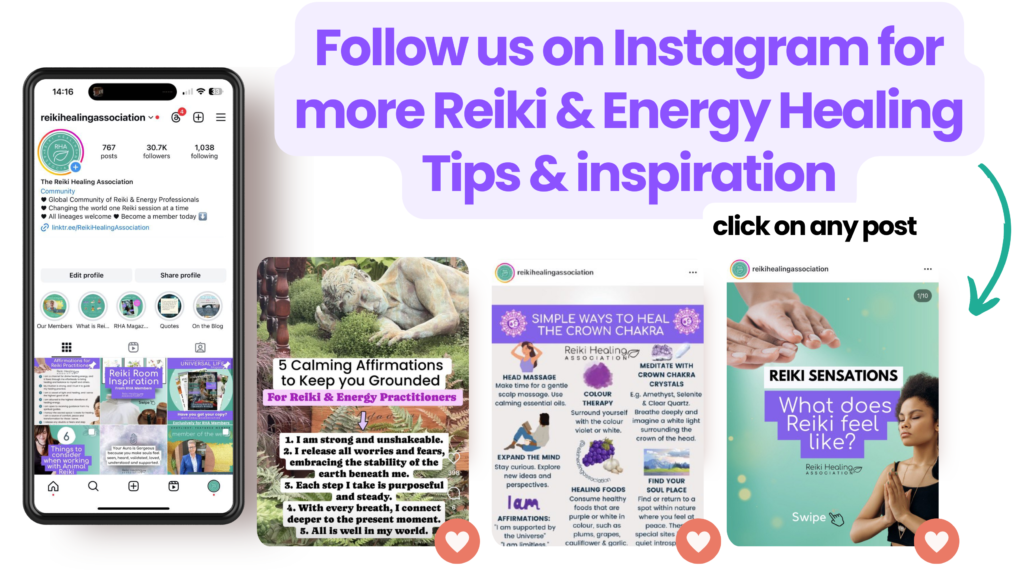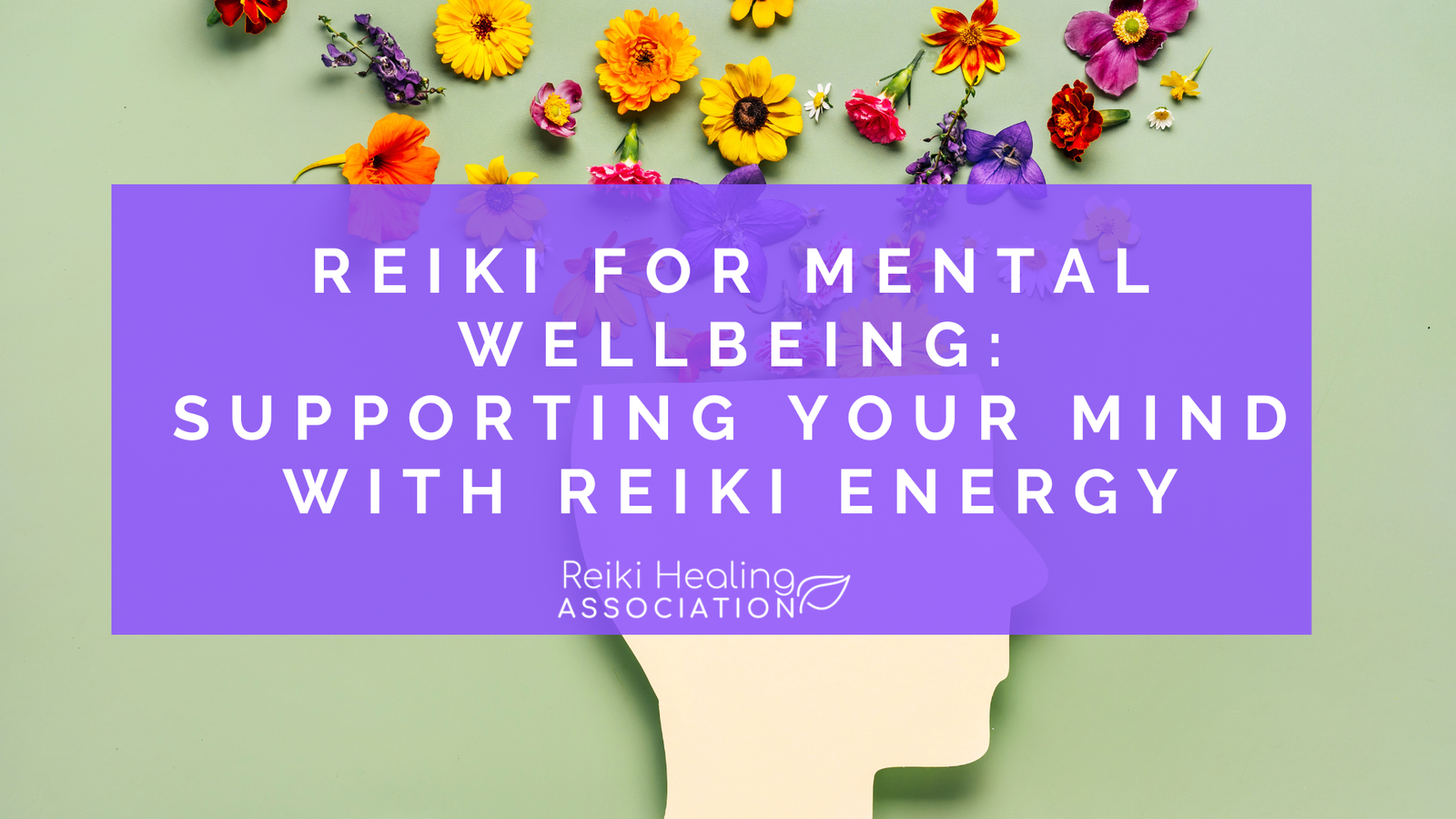
Reiki for Mental Wellbeing: Supporting Your Mind with Reiki Energy
World Mental Health Day is observed every year on October 10th, offering a vital opportunity to raise awareness of mental health issues and advocate for better mental well-being. As conversations around mental health continue to grow, so do the methods for supporting mental wellness. While traditional treatments such as therapy and medication play critical roles, many individuals are seeking out complementary and holistic therapies to enhance their mental and emotional health. One such practice that has gained increasing recognition for its benefits is Reiki. In this blog, we’ll explore how Reiki can support mental wellbeing as well as talking about how you can be mindful of mental health if you are a Reiki Practitioner working with clients.
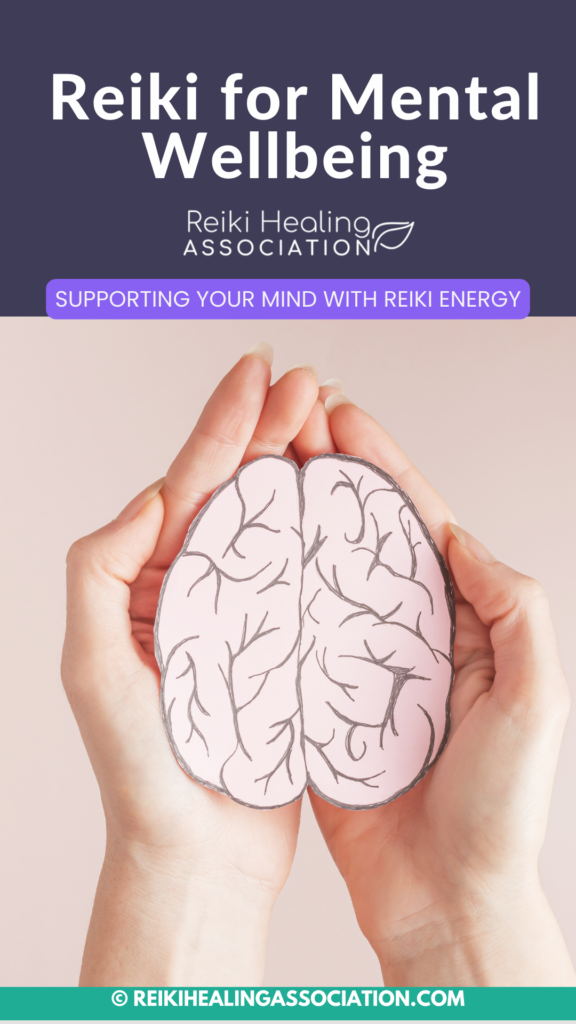
How can Reiki help with Mental Heath and Wellbeing
Reiki, which translates to “universal life energy” in Japanese, is a form of energy healing that has been practiced since the early 20th century. Developed by Mikao Usui, Reiki is based on the belief that a universal life force flows through all living beings. When this energy is blocked or out of balance, it can result in emotional, physical, or spiritual dis-ease.
During a Reiki session, the practitioner places their hands lightly on or just above the client’s body to channel healing energy. The energy flows to the areas of the body that need it most, helping to restore balance and promote self-healing. While Reiki is widely known for its physical healing benefits, it is increasingly recognized for its profound impact on mental health and emotional well-being.
One of the powerful aspects of Reiki is its holistic approach to healing. Reiki sees the person as a whole—mind, body, and spirit—and respects the interconnectedness of these elements. This perspective acknowledges that mental health issues often manifest in physical symptoms and that emotional pain can lead to physical discomfort. By addressing the entire person, Reiki can help alleviate mental health challenges by promoting overall harmony and balance.
Reiki for Stress Reduction and Relaxation
As the field of mental health care grows, so does the interest in alternative therapies like Reiki. While scientific evidence supporting Reiki is still developing, several studies suggest it can effectively promote relaxation, enhance well-being, and alleviate anxiety. Here are some notable studies that support Reiki’s potential benefits:
- A study published in the Journal of Alternative and Complementary Medicine (2006) examined the effects of Reiki on stress reduction. The study found that individuals who received Reiki treatments had significant decreases in stress levels and experienced increased feelings of relaxation compared to those who did not receive Reiki. These effects were measured using physiological indicators like heart rate variability and subjective reports of stress and relaxation.
- A study published in the Journal of Holistic Nursing (2014) investigated the effects of Reiki on nurses experiencing burnout and high stress levels. The results showed that nurses who received regular Reiki treatments reported lower levels of perceived stress, burnout, and emotional exhaustion.
- A study published in Research in Gerontological Nursing (2012) focused on older adults and found that Reiki treatments helped reduce anxiety and depression in nursing home residents. The participants who received Reiki sessions reported lower levels of anxiety and improved mood.
- A study published in the Journal of Evidence-Based Complementary & Alternative Medicine (2017) explored the effects of Reiki on anxiety and well-being in a group of college students. Participants who received Reiki treatments reported significant reductions in anxiety and increased feelings of relaxation and overall well-being compared to the control group.
- A 2016 randomized controlled trial published in Complementary Therapies in Clinical Practice assessed the impact of Reiki on emotional health and well-being in cancer patients. The study found that patients who received Reiki experienced an improvement in their overall quality of life, including better emotional well-being, less anxiety, and reduced feelings of sadness or distress.
- A study in the Journal of Psychiatric and Mental Health Nursing (2013) evaluated the effectiveness of Reiki in individuals diagnosed with mild depression and anxiety. The participants who received Reiki showed significant improvements in mood, self-esteem, and mental well-being over time.
- The systematic review titled “Effects of Reiki on Mental Health Care” in Holistic Nursing Practice (2021) the concluded that Reiki shows promise as a complementary therapy in mental health care, particularly in reducing anxiety, stress, and improving emotional well-being. However, more rigorous research is needed to establish stronger scientific evidence supporting its use in clinical settings.
The Mental Health Benefits of Reiki
In today’s fast-paced, stress-laden world, mental health issues like anxiety, depression, and stress-related disorders are on the rise. Reiki offers a non-invasive, gentle way to address these issues by restoring energetic balance and promoting deep relaxation.
1. Reducing Stress and Anxiety
One of the most well-known benefits of Reiki is its ability to reduce stress and anxiety. Reiki helps activate the parasympathetic nervous system, which is responsible for the body’s relaxation response. This system counters the fight-or-flight response that is often triggered by stress, allowing the body to calm down, relax, and recover.
Many people who experience Reiki for anxiety report feeling more grounded and peaceful after sessions. Reiki helps quiet the mind and release the mental chatter that often contributes to feelings of anxiety. Over time, regular Reiki treatments can lead to lower baseline levels of stress, helping individuals better cope with daily challenges and reduce the risk of anxiety attacks.
2. Promoting Emotional Balance
Emotional health is a key component of overall mental well-being, and Reiki is highly effective in promoting emotional balance. The practice helps release stagnant energy that may be contributing to emotional distress, such as anger, sadness, or grief.
Reiki offers a safe and gentle way to process emotions and achieve a greater sense of emotional equilibrium. During a session, many individuals experience a release of suppressed feelings, allowing for emotional healing and the restoration of balance. As Reiki encourages the flow of positive energy many find it is a helpful way to lift emotional heaviness.
3. Improving Sleep and Reducing Insomnia
Good sleep is crucial for mental health, yet many people with anxiety, depression, or stress-related disorders struggle with insomnia or restless sleep. Reiki helps improve sleep quality by calming the mind and relaxing the body. The deep relaxation experienced during a Reiki session often leads to better, more restful sleep in the days following treatment.
Many clients report experiencing a sense of mental clarity and emotional release after Reiki sessions, which helps them fall asleep more easily and wake up feeling refreshed.
A lot of Reiki Practitioners like to practice self-Reiki before bed, to help them drift off more easily. And a lot of clients even fall asleep in Reiki sessions.
4. Supporting Trauma Recovery
For individuals who have experienced trauma, Reiki offers a safe and non-invasive way to support the healing process. Trauma often creates energetic blockages in the body, manifesting as emotional pain, anxiety, or physical tension.
While Reiki is not a substitute for therapy or medical treatment for trauma, it can serve as a complementary therapy that supports emotional healing. By promoting relaxation and balance, Reiki can help individuals feel safer in their bodies, reducing the impact of traumatic memories and providing a sense of inner peace.
5. Enhancing Self-Awareness and Mindfulness
Reiki encourages individuals to become more in tune with their bodies and emotions, fostering a heightened sense of self-awareness. This self-awareness is crucial for mental health, as it allows individuals to identify their needs, set boundaries, and make informed decisions that support their well-being.
By incorporating mindfulness into the practice, clients are encouraged to focus on the present moment and observe their thoughts and feelings without judgment. This mindful approach can lead to improved emotional regulation, helping individuals cope better with daily challenges and stressors.
Reiki Principles and Mental Health: Cultivating Mindfulness and Emotional Balance
The practice of Reiki is deeply rooted in a set of guiding principles that offer more than just a framework for energy healing; they serve as a holistic approach to cultivating mindfulness and emotional balance. These principles, established by Mikao Usui, encourage individuals to live with intention and awareness, which can significantly enhance mental health and well-being.
The Five Reiki Principles
The Five Reiki Principles are:
- Just for today, I will not be angry.
- Just for today, I will not worry.
- Just for today, I will be grateful.
- Just for today, I will do my work honestly.
- Just for today, I will be kind to every living thing.
Each principle encourages practitioners to cultivate a mindful approach to life.
1. Letting Go of Anger
The first principle, “Just for today, I will not be angry,” emphasizes the importance of releasing negative emotions that can cloud our judgment and create mental turmoil. Anger, often rooted in unresolved issues or external pressures, can be detrimental to both mental and emotional well-being.
By consciously choosing to let go of anger, individuals learn to cultivate a state of mindfulness where they can observe their feelings without judgment. This practice allows them to respond to situations with calmness and clarity, rather than reacting impulsively. Over time, this principle can lead to healthier emotional regulation, reducing feelings of frustration and irritation.
2. Overcoming Worry
The second principle, “Just for today, I will not worry,” encourages individuals to break free from the cycle of worry that often stems from fear of the unknown. Worrying about future events can lead to anxiety, which can be debilitating and prevent individuals from living fully in the present moment.
Practicing mindfulness through this principle allows individuals to focus on what they can control today rather than becoming overwhelmed by future uncertainties.
3. Embracing Gratitude
“Just for today, I will be grateful” highlights the transformative power of gratitude in enhancing mental health. Research has shown that practicing gratitude can lead to lower levels of anxiety and depression while increasing overall life satisfaction.
When individuals focus on what they are thankful for, they naturally shift their mindset from scarcity to abundance. This positive outlook promotes emotional resilience and helps individuals better cope with stressors. By taking time each day to reflect on things they appreciate, individuals can cultivate a deeper sense of contentment and joy, further improving their mental well-being.
4. Living with Integrity
The fourth principle, “Just for today, I will do my work honestly,” encourages individuals to approach their responsibilities with integrity. This principle fosters a sense of accountability and purpose, essential components for mental health.
When individuals engage in their work and relationships honestly, they create a solid foundation for trust and respect, both for themselves and others. This integrity can lead to stronger connections and a supportive environment, which are vital for mental wellness. Furthermore, living authentically reduces the cognitive dissonance that often arises from dishonesty, leading to greater inner peace and emotional balance.
5. Practicing Kindness
Lastly, “Just for today, I will be kind to every living thing” underscores the importance of compassion—not only toward others but also toward oneself. Practicing kindness can significantly enhance mental health, fostering a sense of community and connectedness.
When individuals engage in acts of kindness, they not only uplift others but also experience a sense of fulfillment and happiness. This positive feedback loop creates an environment where emotional healing can flourish. Additionally, being kind to oneself is crucial; it encourages self-acceptance and nurtures mental well-being, reducing the impact of self-criticism and negative thought patterns.
How to Incorporate Self Reiki into Your Mental Health Routine
Incorporating self-Reiki into your mental health routine can be a powerful way to promote relaxation, reduce stress, and enhance emotional well-being.
Create a Peaceful Environment
Before you begin your self-Reiki practice, set the stage for a calm and inviting space. Consider the following:
- Choose a Quiet Location: Find a space where you won’t be disturbed, whether it’s a quiet room in your home, a peaceful corner, or even outside in nature.
- Dim the Lights: Soft, dim lighting can help create a serene atmosphere conducive to relaxation.
- Use Aromatherapy: Essential oils like lavender, chamomile, or frankincense can enhance your self-Reiki experience. Consider using a diffuser or simply placing a few drops on a cotton ball near your space.
- Add Comfort Items: Surround yourself with comfortable pillows, blankets, or a mat where you can sit or lie down comfortably.
2. Set an Intention
Setting a clear intention for your self-Reiki practice can guide your session and help focus your energy. Here’s how to do it:
- Reflect on Your Needs: Before starting, take a moment to reflect on what you hope to achieve during your session. It could be stress relief, emotional healing, or simply relaxation.
- Articulate Your Intention: Once you’ve identified your goal, articulate it as a positive affirmation or statement. For example, “I intend to release stress and invite peace into my life.”
3. Ground Yourself
Grounding yourself helps you connect with the present moment and enhances your Reiki experience. Here are a few techniques:
- Take Deep Breaths: Begin by taking several deep, cleansing breaths. Inhale through your nose, allowing your abdomen to expand, and then exhale through your mouth, releasing any tension.
- Visualize Grounding: Imagine roots extending from your feet into the earth, anchoring you and providing stability. This visualization can help you feel more connected and centered.
4. Use Self-Reiki Hand Positions
In Reiki practice, hand positions are helpful for channelling energy to specific areas of the body. Here’s a detailed guide on hand positions specifically for mental healing:
- Top of the Head: Gently place your hands on the top of your head, or keep them a few inches above it. This position helps to open and balance the crown chakra, facilitating spiritual connection, mental clarity, and overall peace.
- Side of the Head Position: Place your hands gently on the sides of your head, just above the ears. This position helps to relieve mental tension, stress, and headaches. It can promote relaxation and clarity in thought.
- Forehead Position: Place one hand on your forehead (between the eyebrows) and the other hand on the back of your head. This area is associated with the third eye chakra, which governs intuition, insight, and mental clarity. This position can help calm anxiety and enhance awareness.
- Heart Chakra: Place both hands gently over your heart center (the middle of your chest). The heart chakra is crucial for emotional healing and balance. This position encourages self-love, compassion, and emotional release, helping to alleviate feelings of sadness or grief.
- Pelvis Position: Place your hands on your hips or lower abdomen. This area is associated with the root chakra, which connects you to the earth. This position can help release feelings of fear and insecurity, fostering a sense of safety.
You can hold each position for 3-5 minutes, allowing yourself to relax and feel the energy flow.
5. Practice Mindfulness
Incorporate mindfulness into your self-Reiki practice to enhance its effects. Here’s how:
- Focus on Your Breath: Pay attention to your breathing, allowing each inhale and exhale to draw you deeper into relaxation.
- Notice Sensations: As you hold your hands in position, notice any sensations, emotions, or thoughts that arise. Acknowledge them without judgment and let them pass.
- Be Present: Stay present with your experience, observing any shifts in energy, emotions, or thoughts. This awareness fosters a deeper connection to yourself.
6. Close Your Practice
Conclude your self-Reiki session mindfully:
- Express Gratitude: Take a moment to thank yourself for dedicating time to your healing. Express gratitude for the energy and support you received.
- Ground Again: Engage in a brief grounding exercise, such as feeling your feet on the floor or taking a few deep breaths, to bring yourself back to the present.
- Journal Your Experience: Consider keeping a journal to note any insights, emotions, or sensations you experienced during your self-Reiki session. This reflection can deepen your understanding of your healing journey.
7. Incorporate Self-Reiki into Your Routine
To reap the benefits of self-Reiki, consider incorporating it into your regular self-care routine:
- Schedule Sessions: Set aside specific times each week for self-Reiki. Consistency can help establish a calming habit.
- Combine with Other Practices: Consider integrating self-Reiki with meditation, yoga, or breathwork for a comprehensive self-care approach.
- Be Patient: Like any practice, self-Reiki may take time to yield noticeable effects. Be patient with yourself and allow the process to unfold naturally.
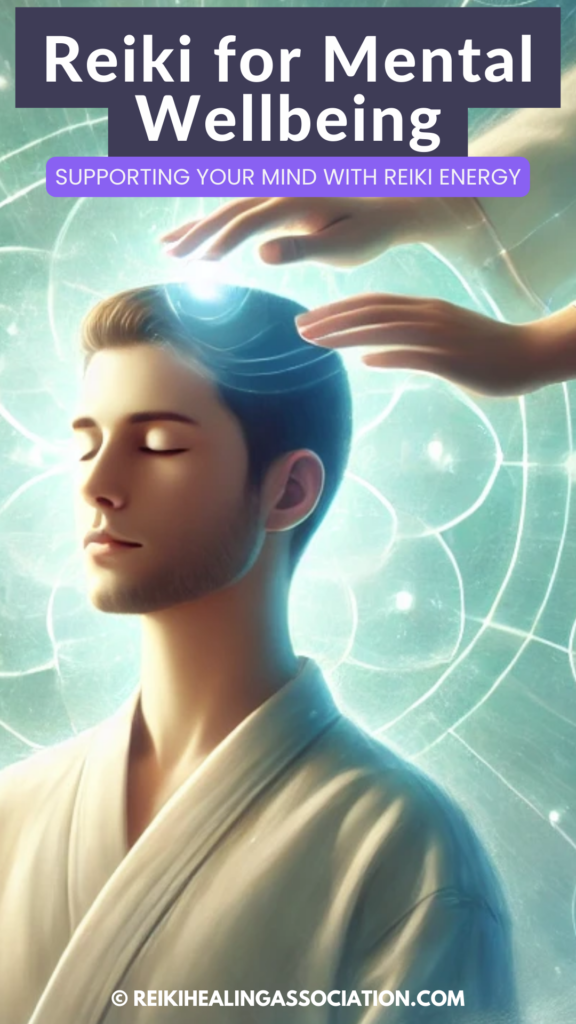
Being Mindful of Mental Health as a Reiki Practitioner
As a Reiki practitioner, it’s essential to be mindful of the mental health needs and emotional well-being of your clients. While Reiki can be a powerful tool for relaxation and healing, it’s crucial to recognize its role as a complementary therapy rather than a substitute for professional mental health care. Here are some key points to consider when working with clients, particularly those who may be dealing with mental health challenges:
1. Respect Clients’ Emotional Experiences
Every client comes to a Reiki session with their own unique experiences, and many may be silently struggling with mental health issues such as anxiety, depression, or trauma. It’s important to approach each session with an open heart and non-judgmental attitude, acknowledging that you may not fully understand the depth of their emotional pain.
Be compassionate: Listen to your clients and hold space for them to express their feelings, if they choose to do so. However, avoid pressuring them to open up. Not everyone will feel comfortable sharing their struggles, and it’s essential to respect their boundaries.
Maintain professional boundaries: While it’s natural to want to help, avoid giving advice outside of your expertise. Reiki practitioners are not mental health professionals, and it’s vital to stay within the scope of your practice.
2. Recognize the Limits of Reiki
Reiki can be incredibly beneficial for promoting relaxation, reducing stress, and restoring energetic balance, but it’s important to recognize that it is not a substitute for therapy or medical treatment, especially for serious mental health conditions.
Complement, don’t replace: Reiki should be seen as a complementary therapy that works alongside traditional mental health treatments. Be mindful of clients who may be looking for alternative treatments to replace conventional therapy or medication. In such cases, gently remind them that Reiki works best when integrated into a broader mental health care plan.
3. Refer Clients to Mental Health Services When Necessary
As a Reiki practitioner, it’s crucial to know when to refer a client to a licensed mental health professional. While Reiki can support emotional well-being, it is not a treatment for mental health disorders. If a client shares that they are experiencing severe symptoms—such as suicidal thoughts, overwhelming anxiety, or debilitating depression—encourage them to seek professional help from a counselor, therapist, or psychiatrist.
Have resources ready: Keep a list of local mental health professionals, helplines, and support groups that you can share with clients in need. This shows that you are looking out for their well-being and understand the importance of integrating different forms of support.
Encourage therapy: Normalize seeking therapy for mental health challenges and emphasize that Reiki can work in harmony with counseling and other interventions to create a holistic approach to healing.
4. Observe Ethical and Confidential Practices
When working with clients, confidentiality is paramount. Some clients may share deeply personal stories, thoughts, or feelings during a session. It’s your responsibility to maintain their trust by keeping their disclosures private.
Uphold client confidentiality: Never share personal details or stories from your sessions with others unless you have explicit permission from the client, and only do so if it’s relevant for their healing process.
Follow ethical guidelines: As a Reiki practitioner, follow professional ethical standards in your practice. This includes maintaining professional boundaries, respecting clients’ personal space and comfort levels, and ensuring that you provide a safe, non-judgmental healing environment.
5. Be Aware of Your Own Limitations
While many Reiki practitioners have a deep sense of empathy, it’s important to recognize that you are not responsible for “fixing” your client’s mental health. Reiki is a supportive tool, but healing is ultimately an individual process, and clients may require a combination of different therapies to achieve mental well-being.
Self-care as a practitioner: Regularly check in with yourself to ensure that you’re not taking on the emotional burden of your clients’ experiences. Maintaining clear boundaries and practicing self-care is essential to prevent emotional exhaustion or burnout.
6. Understanding Trauma-Informed Care
Clients who have experienced trauma often hold emotional energy in their bodies, which may be released during Reiki sessions. Trauma-informed care is an approach that acknowledges the effects of trauma and creates a safe environment for healing. Mental health training, especially with a focus on trauma, can help you:
- Identify signs of trauma and understand the potential for emotional triggers during a session.
- Adapt your practice to ensure that clients feel safe, comfortable, and in control, minimizing the risk of re-traumatization.
Getting mental health training as a Reiki practitioner not only strengthens your ability to support clients but also ensures that you are practicing ethically and within your scope. With the right knowledge and skills, you can create a safe, compassionate healing environment that respects the complexities of mental health while integrating the relaxing and balancing power of Reiki.
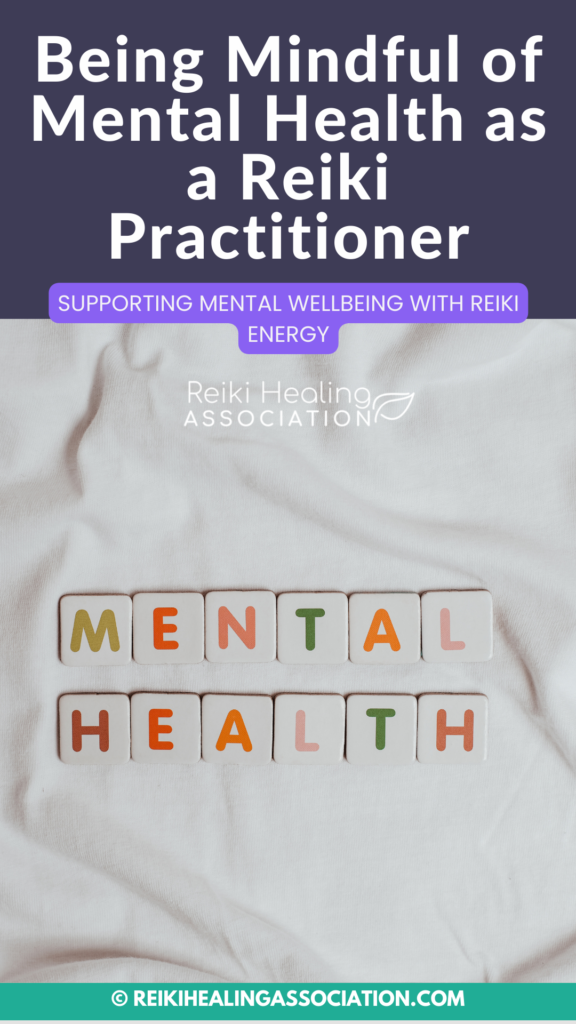
Conclusion
Reiki’s holistic approach to healing—addressing the mind, body, and spirit—makes it a powerful tool for enhancing mental health and well-being. By promoting relaxation, supporting emotional healing, enhancing self-awareness, and improving sleep quality, Reiki offers individuals a pathway to greater emotional balance and resilience.
As more people seek complementary therapies to support their mental health journeys, Reiki stands out as a gentle yet effective practice that can provide profound benefits. Whether used alone or in conjunction with traditional treatments, Reiki can help individuals navigate the complexities of mental health and foster a deeper connection to their inner selves.
As a Reiki practitioner, it’s essential to be mindful of your clients’ mental health, recognizing the boundaries of your practice and the importance of integrating Reiki with other forms of mental health care. By approaching each session with compassion, respect, and ethical awareness, you can offer a safe and supportive space for your clients. Referring clients to licensed mental health professionals when necessary and encouraging a holistic approach to healing ensures that they receive the comprehensive care they need on their path to mental and emotional wellness.
© Copyright Reiki Healing Association™ 2024+ | All Worldwide Rights Reserved
Like this article? Share your thoughts in the comment box below!
And for more Reiki resources, be sure to connect with the Reiki Healing Association on Instagram, where we post daily Reiki inspiration and advice for healing and growth as a Reiki Practitioner or Reiki-enthusiast! And don’t forget to follow us on Pinterest, where we are pinning positive affirmations and empowering quotes every single day.
Have you read the latest issue of Universal Life Magazine yet? As Members of the RHA you get Exclusive Access to the Magazine, and to access your copy all you need to do is log in to your Member’s Area. You can get a copy of the magazine if you subscribe to our newsletter too!
More Articles For You
- The Beautiful Cho-Ku-Rei: Power in the Palm of Your Hand
- Reiki Vision Board: Releasing the Magic of Vision Boards with Reiki
- Self-Care for Reiki Practitioners
- Just for today I will be Grateful – How to Live Each Day with Gratitude
- Setting Up Your Week For Powerful Reiki Sessions
- What to Expect during a Reiki Session: Our Members Share the most common experiences


